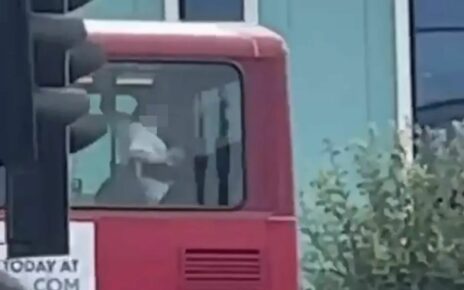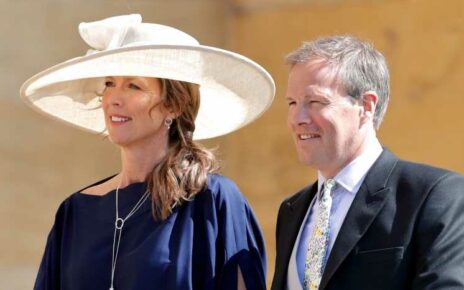By Nigel Gladstone
Illustration: Matthew Absalom-Wong
A massive leak of classified documents from the Colombian government has exposed the identities and methods of secret agents working to stop international drug cartels from operating in Australia.
More than five terabytes of data, including more than five million emails and tens of thousands of documents, were hacked and held in a password-protected database in August.
The leak contains details of 35 Australian Federal Police operations, some ongoing, as well as surveillance reports from undercover agents, phone taps and payroll records for Colombian law enforcement officers. Many overseas police agencies are also affected.
One group is allegedly linked to a Queensland accounting firm that caters to Spanish speakers, and an Australian man with links to the Bandidos.Credit:
The leak sheds light on the vast scale of drug importation into Australia and the webs of businesses such as gyms, luxury car dealerships, hairdressers and a nightclub set up to launder drug money.
In one case, the AFP is hunting a drug kingpin who is living in luxury after fleeing Perth for Colombia, leaving behind a string of still-operating businesses here. In another, a series of migration agents targeting Colombian students is being used to filter money and imported cocaine to motorcycle gangs operating in Brisbane.
The AFP, which was first made aware of the data breach when it was contacted by The Sydney Morning Herald and The Age on October 4, is attempting to stem potential damage to its operations.
“The AFP is concerned about possible breaches of operational security as a consequence of this data compromise,” a spokesperson said. “The AFP is working with our partners in impacted regions to mitigate any potential threats to the safety of people, or ongoing investigations.”
To reduce the risk that reporting could compromise current investigations or endanger lives, the Herald delayed publication until today.
The AFP has dismantled an Australian criminal network allegedly importing and manufacturing hundreds of kilograms of cocaine under the direction of a Colombian organised crime syndicate. Credit:
“Transnational serious organised crime groups are importing illicit drugs into Australia on an industrial scale,” the AFP spokesperson said. “They are ambivalent to the misery caused by their product, its impact on our health systems, or if innocent people are killed in the crossfire of their turf wars.”
The Herald and Age have reviewed thousands of emails (most in Spanish), verified them and then destroyed all copies along with all the associated metadata, to have no access to the leaked database or any of its contents.
Information that could affect ongoing police operations or court cases, disclose novel police methods or put people in danger is not being published.
The group claiming responsibility for the data hacking, Guacamaya, the Mayan name for macaw, said it has environmental and anti-imperialist motives.
In a statement, they said their motivation is to target mining and oil companies, military and police systems in Mexico, Peru, El Salvador, Chile, Colombia and elsewhere to sabotage corporations and systems they said exploit natural resources and support US interests.
Guacamaya “invites the peoples of Abya Yala (an Indigenous name for Central and South America) to hack and filter these systems of repression, domination and enslavement that dominate us, and that it be the peoples who decide to find a way to free us from state terrorism,” their statement said.
The AFP with drugs seized from a clandestine laboratory in July 2022.Credit:
In a separate hack, the group published emails from Chile’s military forces, resulting in the head of the joint chiefs of staff there, General Guillermo Paiva, resigning on September 23.
The documents chart a steady flow of cocaine and other drugs from Colombian cartels and organised crime groups in Europe, Asia and the Pacific targeting Australian ports and airports, via intermediaries in places such as Africa, Hong Kong and Fiji.
Large-scale drug importation is happening via shipping containers, small and large aircraft, cargo vessels and private yachts, in some cases with the aid of corrupt law enforcement officials overseas.
Some documents pertain to current AFP operations and others reveal details about past operations, including the recently revealed Ironside sting, which brought down crime networks around the world.
Some of the AFP’s operations in the leak led to arrests in Australia and overseas, apparently causing significant disruption to drug supply chains.
In one operation, the AFP and their Colombian counterparts focused on a cartel “moving large quantities of cocaine (up to 500 kilograms) to Europe or Africa (as intermediate countries) where it is broken up into small quantities and forwarded to other countries including Australia”.
The cartel was “sending smaller three-kilogram packages of cocaine which are hidden in products including pottery mud/make-up [and] using a crypto/cash office/s in Melbourne and Sydney to move money offshore”, according to one email.
The cartel uses people on student visas, who receive the air cargo consignments from FedEx Colombia and then send money to Colombia.
Concealment techniques for the drugs often change but the use of clothing items to conceal drugs is a feature of the syndicate’s methods, the documents reveal. The syndicate also “has the ability to impregnate cocaine into items like plastic tables and mobile phones”. Other items used to conceal the cocaine include large bolts, engine parts, shampoo and face creams.
The group is allegedly linked to a Queensland accounting firm that caters to Spanish speakers, and an Australian man with links to the Bandidos, Mongols and Lone Wolf Outlaw Motorcycle Gangs.
In another AFP operation, their strategy is to “disrupt the onshore syndicate of Colombian-born student visa holders, connected through common education agents and agencies, importing cocaine into South East Queensland via the air cargo stream”, an emailed AFP report said.
The number of Colombians applying for student visas to Australia increased from 1859 in 2005-06 to 17,250 in 2019-20, more than doubling in the six years between 2015 and 2020.
“Efforts to disrupt the syndicate’s exploitation of the student-visa stream is also a primary focus for Home Affairs,” the report said.
“Visa applications connected to education agencies of concern are now subject to safeguards, resulting in heightened levels of scrutiny.”
In another operation, the AFP identified 55 people as potentially involved in an Australian cartel run out of Perth.
The kingpin, who fled the country in 2018 and now lives in Colombia with his wife, has 17 registered companies in his name. He has “family members who seem to live beyond their means and have significant unjustified wealth”.
Australian authorities shared intelligence with their Colombian counterparts relating to the kingpin’s distribution of methamphetamine, MDMA and heroin trafficked into Perth via criminal networks in the Middle East and South-East Asia.
The kingpin and an accomplice are subject to Interpol blue notices. In September 2019, when he and five other people tried to travel to Panama, they were denied entry due to the blue notice and simply returned to Colombia.
The companies associated with the syndicate have had investments in gyms, a mechanical workshop, a halal meat product company, a used car dealership, commercial premises, residential real estate, businesses related to luxury cars, boats and heavy machinery, hairdressing, beauty treatments, massage businesses and a nightclub.
“These companies seem to have been created for the purpose of investing money that has entered Colombia through international transactions from Australia,” a police report said.
In August 2018, the Australian Criminal Intelligence Commission (ACIC) published a report that detailed some of the group’s money laundering and drug trafficking activities.
It uses a “complex structure of interconnected companies to assist in the placement, distribution and integration of the proceeds of crime with company directors who are direct family members including his brother with an interest in 14 companies,” the ACIC said.
The kingpin received $100 million in tracked international transfers in the first four months of 2019 alone.
Other transactions linked to the group have funnelled millions of dollars overseas via a web of shell companies, from the sale of luxury cars, transfers from a commercial law firm and migration agent, money transfers via the Commonwealth Bank, ANZ and US banks including Wells Fargo, and cash deposits under $10,000 via ATMs.
Our Breaking News Alert will notify you of significant breaking news when it happens. Get it here.
Most Viewed in National
Source: Read Full Article






